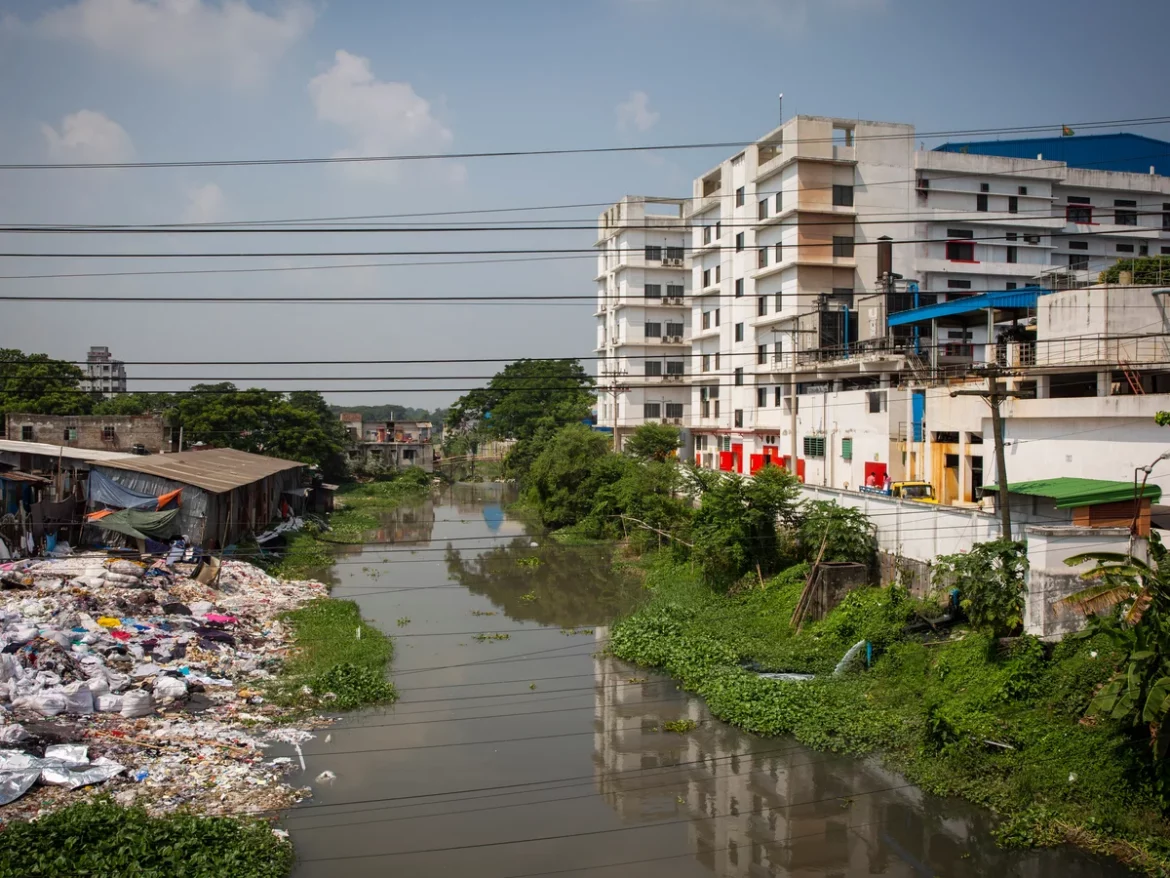A report has found that almost a quarter of the world’s biggest fashion brands, such as Reebok, Tom Ford and DKNY, do not have a public plan for decarbonisation.
Available data shows that the fashion industry can be highly polluting. In some casesforever chemicals have been found in the waters near factories. The industry is also a concerning source of waste, with fast fashion accused of encouraging overconsumption.
The What Fuels Fashion? report, which was published on Thursday, analyses and ranks 250 of the world’s biggest fashion brands and retailers – those with turnover of $400m (£313m) or more – based on public disclosure of their climate goals and actions.
The researchers assessed 70 different sustainability criteria, such as emissions targets, transparency over the supply chain, and whether renewable energy is used to power factories, to award fashion chains a percentage score.
Companies such as DKNY, Tom Ford and Reebok were granted a 0% decarbonisation score in the report, meaning they had not sufficiently laid out how they planned to remove emissions from their supply chain. Also scoring low were Urban Outfitters and Dolce & Gabbana, with a 3% score.
The highest-scoring brands for sustainability overall were Puma (75%), Gucci (74%), and H&M (61%).
Read also: Shell’s half-year profits climb to £10.9bn after focusing on fossil fuels
Only four out of 250 brands scrutinised by Fashion Revolution met the emissions reductions targets set for companies by the United Nations.
The report found that only 117 of the 250 brands had any decarbonisation targets at all. Of these, 105 brands disclosed updates on their progress. But of these, 42 reported increased scope-3 emissions against their baseline year.
According to the report, 86% of companies lack a public coal phaseout target, and 94% do not have a public renewable energy target. Less than half (43%) of brands are transparent about where they get their energy from, whether it is from coal, gas or renewables.
There is a fear the industry produces too many clothes, a large number of which end up in landfill, and the report noted there was an accountability problem in this regard, with most big fashion brands (89%) not disclosing how many clothes they make each year.
Supply chain workers around the world are often at the forefront of the climate crisis, with major textile-producing countries, such as Bangladesh, facing increasingly severe flooding which puts the workers at risk. Estimates suggest extreme weather, such as droughts, heatwaves and monsoons, could cost almost 1 million jobs in the sector.
Fashion Revolution found that just 3% of major fashion brands disclose efforts to financially support workers affected by the climate crisis. The report’s authors called for companies to step up to the plate and protect those who were often being paid poverty-line wages to make their clothes.
Story was adapted from the Guardian.
